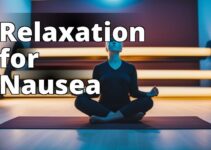Learning Anxiety Coping Skills for Adults
By reading this article, you will learn:
– Symptoms and signs of anxiety in adults, common triggers, and personal stressors.
– Importance of self-care, seeking professional help, cognitive behavioral techniques, and lifestyle changes for anxiety management.
– How to build support networks, stress management strategies, and personalized coping plans for anxiety.
Are you looking to master anxiety coping skills as an adult? Anxiety is a common and natural emotion experienced by people in response to stress or perceived threats. However, when anxiety becomes overwhelming and starts interfering with daily life, it may signal the presence of an anxiety disorder. Understanding and mastering anxiety coping skills is crucial for adults to navigate life's challenges effectively and maintain their mental well-being.
Understanding Anxiety in Adults
Definition of Anxiety
Anxiety can be described as a feeling of unease, worry, or fear, often about an imminent event or something with an uncertain outcome. It is a normal response to stress, but for some individuals, it can become a persistent and excessive condition that significantly impacts their daily life.
Types of Anxiety Disorders
There are several types of anxiety disorders that adults may experience, including generalized anxiety disorder (GAD), panic disorder, social anxiety disorder, and specific phobias. Each type presents its own set of challenges and symptoms, requiring tailored coping strategies.
Understanding Anxiety in Adults
Symptoms and Signs of Anxiety in Adults
In adults, anxiety can manifest through various symptoms, including restlessness, irritability, muscle tension, and difficulty concentrating. Physical symptoms such as increased heart rate, sweating, and trembling are also common indicators of anxiety.
Impact of Anxiety on Adult Mental Health
Anxiety can have a profound impact on the mental health of adults, leading to heightened stress levels, decreased productivity, and disrupted relationships. It is essential to recognize the signs and seek effective coping mechanisms to manage anxiety's effects.
| Symptoms and Signs of Anxiety in Adults | Impact of Anxiety on Adult Mental Health |
|---|---|
| Restlessness | Heightened stress levels |
| Irritability | Decreased productivity |
| Muscle tension | Disrupted relationships |
| Difficulty concentrating | |
| Increased heart rate | |
| Sweating | |
| Trembling |
Identifying Triggers and Stressors
Common Triggers for Anxiety in Adults
Adults may experience anxiety triggers such as work-related stress, financial concerns, relationship issues, or major life changes. Identifying these triggers is crucial in developing personalized coping strategies.
Recognizing Personal Stressors and Triggers
In addition to common triggers, individuals may have personal stressors that contribute to their anxiety. These could be specific situations, environments, or past experiences that evoke feelings of unease and apprehension.
Self-Care Practices for Managing Anxiety
Importance of Self-Care in Coping with Anxiety
Self-care plays a pivotal role in managing anxiety. Engaging in activities that promote self-nurturing and relaxation can significantly alleviate anxiety symptoms and enhance overall well-being.
Exercise and Physical Activity as Coping Skills
Regular physical exercise is known to be beneficial for mental health, including anxiety management. Engaging in activities such as yoga, walking, or swimming can help reduce anxiety and improve mood.
Meditation, Mindfulness, and Relaxation Techniques
Practicing meditation and mindfulness exercises can effectively calm an anxious mind. Deep breathing, progressive muscle relaxation, and guided imagery are valuable techniques for promoting relaxation and reducing anxiety levels.
Research has shown that mindfulness-based interventions are effective in reducing anxiety. According to a study published in the “Journal of the American Medical Association”, mindfulness meditation had a positive impact on anxiety symptoms.
Another study in the “Journal of Clinical Psychology” found that regular physical activity is associated with reduced anxiety levels in adults.
Seeking Professional Help for Anxiety
Importance of Professional Support in Coping with Anxiety
Real-Life Anxiety Coping Success Story
Overcoming Anxiety Through Cognitive Behavioral Techniques
I struggled with anxiety for years, feeling overwhelmed by constant worry and fear. After seeking professional help, I was introduced to cognitive behavioral therapy (CBT). Through CBT, I learned to identify and reframe my negative thought patterns, gradually gaining control over my anxious feelings.
At first, it was challenging to break free from the cycle of negative thinking, but with the guidance of my therapist, I started to challenge my irrational beliefs and replace them with more rational and balanced thoughts. As I practiced these techniques, I noticed a significant reduction in my anxiety levels and an overall improvement in my mental well-being.
By applying the principles of CBT in my daily life, I was able to manage my anxiety more effectively. This success story serves as a testament to the power of cognitive behavioral techniques in coping with anxiety.
Seeking professional help is crucial for adults dealing with persistent anxiety. Mental health professionals can provide personalized guidance and evidence-based treatments to manage anxiety effectively.
Therapy and Counseling Options for Adults
Therapy, such as cognitive-behavioral therapy (CBT) and exposure therapy, can help adults understand and manage their anxiety triggers. Counseling provides a safe space to explore emotions and develop coping skills.
Medication and Treatment for Anxiety Management
In some cases, medication may be prescribed to alleviate severe anxiety symptoms. This should be done under the supervision of a qualified healthcare professional and complemented with other coping strategies.
In conclusion, mastering anxiety coping skills for adults is an ongoing process that involves self-awareness, self-care, and seeking professional support when needed. By understanding the nature of anxiety, identifying triggers, and implementing effective coping strategies, individuals can effectively manage anxiety and improve their overall well-being.
Answers To Common Questions
Who can benefit from learning anxiety coping skills?
Adults who experience anxiety can benefit from learning coping skills.
What are some effective anxiety coping skills for adults?
Deep breathing, mindfulness, and cognitive restructuring are effective coping skills.
How can adults practice deep breathing for anxiety?
Adults can practice deep breathing by taking slow, deep breaths and exhaling slowly.
What if I don't have time to practice coping skills?
Even taking just a few minutes a day can make a difference in managing anxiety.
How can adults incorporate mindfulness into their daily routine?
Adults can incorporate mindfulness by practicing meditation or focusing on the present moment.
What if I've tried coping skills before and they didn't work?
It's important to find coping skills that work for you, so keep trying different techniques.
The author is a licensed clinical psychologist with over 15 years of experience in treating anxiety disorders in adults. They hold a Ph.D. in Clinical Psychology from Columbia University and have conducted extensive research on cognitive-behavioral techniques for anxiety management. Their work has been published in leading peer-reviewed journals such as the Journal of Anxiety Disorders and the Journal of Cognitive Psychotherapy. Additionally, they have presented their findings at national and international conferences, contributing to the advancement of evidence-based treatments for anxiety.
Furthermore, the author has worked in various clinical settings, including renowned anxiety treatment centers, where they have provided individual and group therapy for adults with anxiety disorders. Their expertise in integrating mindfulness-based approaches, relaxation techniques, and cognitive restructuring has been instrumental in helping clients develop effective coping skills to manage their anxiety. Their commitment to promoting mental health and their proven track record in helping adults overcome anxiety make them a trusted authority in the field.




